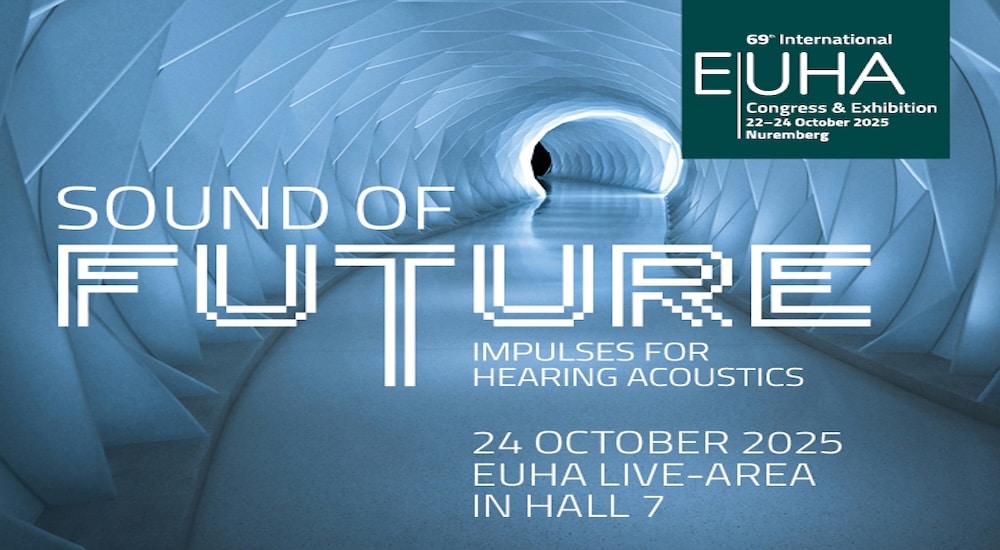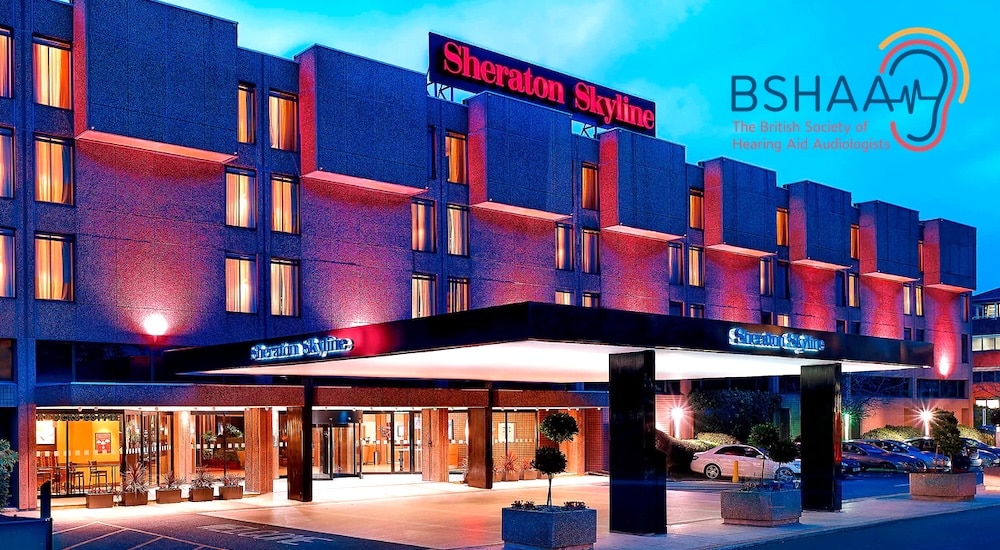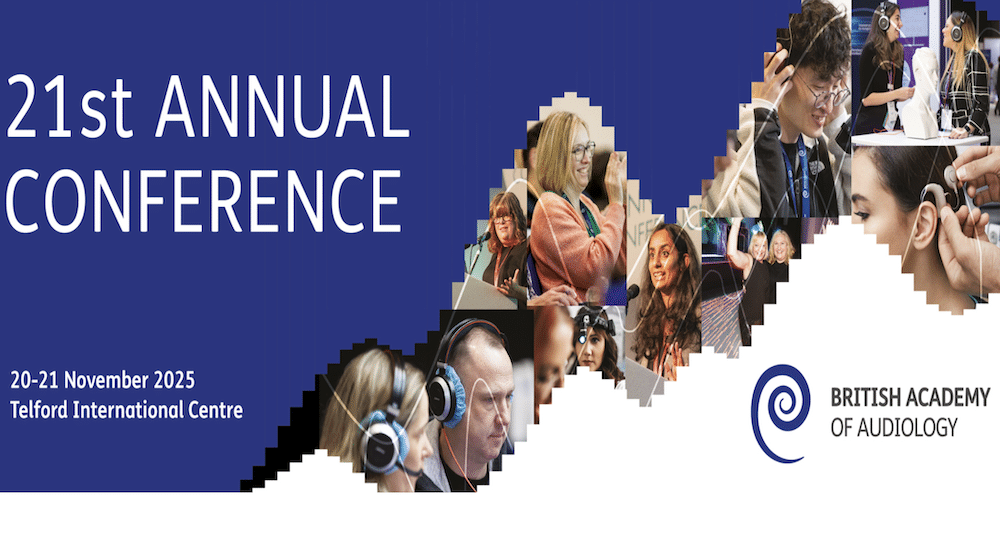Science still north for the BSA at another successful annual gathering
Each year, one of the key conferences in the UK audiology calendar is the Scientific Meeting held by the British Society of Audiology. 2024 was no exception, as the organisation underlined its commitment to evidence-based learning.
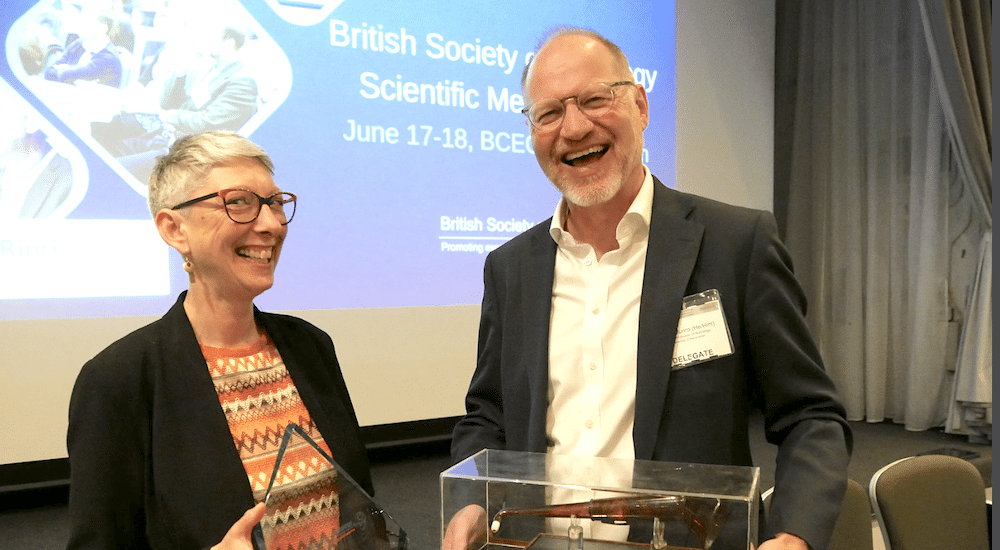
Time and place: two June days (17,18) and the high tech facilities of the Birmingham Conference and Events Centre (BCEC), the basics for the British Society of Audiology (BSA) to host another of its annual Scientific meetings, this latest event bringing 30 speakers covering a wide range of topics from machine learning, ABRs, patient reported outcome & experience measures, reliability of audiologists performing otoscopy, the effect of head orientation on speech intelligibility in noise, and much more.
International speakers among highlights of research delivery
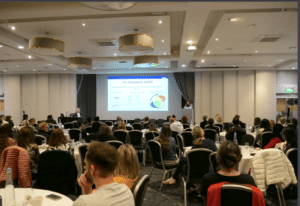
Courtesy of BSA
One of the scientific presentations that form the bedrock of BSA annual meetings.
As well as some of the biggest names from audiology in the UK, we were delighted to be able to welcome a number of international speakers; researcher and clinical audiologist Dr. Laure Jacquemin travelled from Belgium to be with us in person and talked about recent insights in the epidemiology of hyperacusis; Dr. Wayne Wilson, Associate Professor, The University of Queensland, Australia joined us via live link to talk about Auditory Processing Disorder management in children; and Prof. Bill Hodgetts, University of Alberta, delivered the final presentation of day two on Bone Conduction Hearing: A Wider World of Options, a Long List of Improvements, and Some Areas That Still Need Work.
In addition to invited speakers, this year the BSA welcomed submissions for both posters and oral presentations, with ten being chosen as oral presentations.
My personal highlights on day one were the presentations on gene and cell therapy. After much news in the press recently we were delighted to welcome Thomas Mills who presented the promising results from the early stages of the CHORD trial – Intracochlear Administration of DB-OTO Gene Therapy in Pediatric Patients with Profound Hearing Loss Due to Otoferlin Mutations: The CHORD Phase 1/2 Open-label Trial . Both from Rinri Therapeutics, Dr. Rachel Haines, Vice President, Clinical Development and Operations, and Efstratia Papoutselou, Clinical Development Scientist and Patient and Public Involvement Lead followed by giving us a wonderful overview of gene and cell therapy, and their novel therapy Rincell-1, which is due to start clinical trials shortly in the UK. Developed to restore auditory sensory cells using progenitor cells, preclinical studies have shown these cells reverse hearing loss and improved hearing thresholds by ~40%.
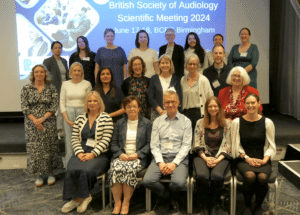
Courtesy of BSA
BSA trustees and SIG group leads.
My highlight from the second day was the interactive session by Dr. Eithne Heffernan, Senior Research Fellow, University of Nottingham, Dr Helen Henshaw, Principal Research Fellow, NIHR Nottingham BRC, Dr. Amanda Hall, Senior Lecturer, Aston University, and Ms. Sophie Wenje, University of Nottingham. Their intriguing presentation looked at generating fundable research ideas using insights from the ongoing James Lind Alliance Priority Setting Partnerships for dementia and hearing loss. It certainly added energy to the meeting and provide a change from the traditional format of a conference session.
Companies and organisations fill out the exhibition space
Participation from the industry and hearing-related organisations completed the event’s appeal, with the presence of Vivosonic, Guymark UK, BAA, Interacoustics, Hypatia Training Ltd, Otodynamics, AmpliVox, Cosium, HashirAazh, specialist in tinnitus and hyperacusis, Rinri Therapeutics, Menieres Society, The Audiology Academy, Signia, Sonova Group, ManCAD, and Path Medical.
